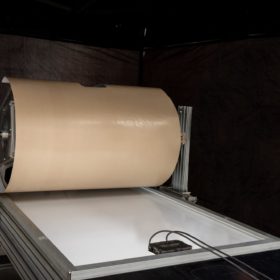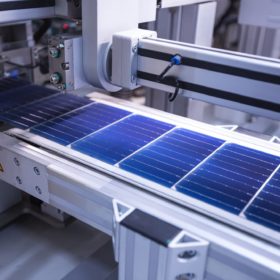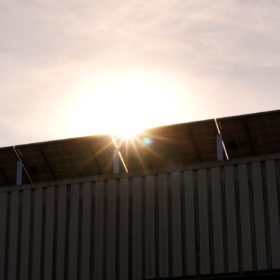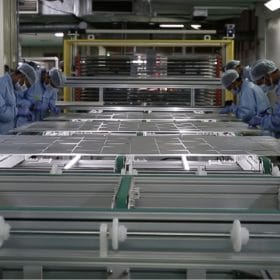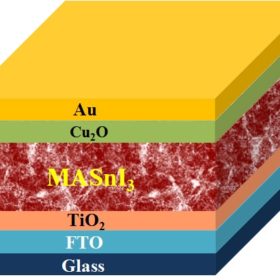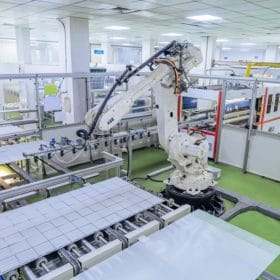Surge in solar panel and polysilicon prices may impact projects in India
Modules represent 45 to 55% of the project capex. In a very competitive market like India, independent power producers have lower margins, and even a modest increase in module prices will put more pressure on them.
Smart sticker for smart solar modules
The sticker is based on a blockchain technology developed by German start-up Authentic Network. Meyer Burger uses the application for the photovoltaic modules it produces in its new factory that opened in Freiberg at the end of May.
A repair tape for cracked backsheets
Backsheet failures have plagued the industry, causing hefty financial burdens to many asset owners. DuPont has launched a product it says allows for easy repair of modules.
Solex orders 1.2 GW solar module production line
The Gujarat-based solar panel maker will buy the production equipment from China’s Jinchen Machinery. Solex also has plans for a 1 GW cell line.
Longi achieves 25.21% efficiency for TOPCon solar cell
The Chinese module manufacturer said the result was confirmed by the Institute for Solar Energy Research in Hamelin, Germany.
Nano-micro-scale cooler for solar modules
The proposed technique is based on radiative cooling and consists of a glass coating made with a two-dimensional subwavelength nanostructured grating, which is imprinted in soda-lime glass and has enhanced mid-infrared emissivity, and a micro-structured grating. The temperature decrease provided by the nano-micro-grating coating was found to be approximately up to 5.8 degrees Celsius.
Adhesive mounting system for any kind of solar modules
The system, developed by Spanish specialist Alusín Solar, is being tested by Endesa in a 9.8 MW project for self-consumption. The mounting structure is made with aluminum bars that, instead of being fixed to the roof with screws, are attached through a double-sided adhesive.
Websol Energy Systems posts 1,542% jump in net profit for FY 2020-21
The Kolkata-based solar manufacturer recorded an INR 67.83-crore net profit for FY 2020-21, against INR 4.13 crore in the previous fiscal year.
Lead-free perovskite solar cell with potential efficiency of 27.4%
Scientists in India have simulated a perovskite cell based on methylammonium tin iodide which they claim may achieve a short circuit current density of 25.97 mA per square centimeter, an open-circuit voltage of 1.203 V, and a fill factor of 87.79%. The cell is composed of a fluorine-doped tin oxide (FTO) substrate, a titanium oxide layer, a methylammonium tin iodide perovskite film, a copper oxide hole transport layer (HTL), and a layer made of gold (Au).
Covid adds to solar manufacturer woes
A pandemic-related sales slump has dealt another blow to domestic panel makers already faced with rising input costs and an expected surge in imports due to the scheduled wind down of safeguarding duties on foreign products from late July.


